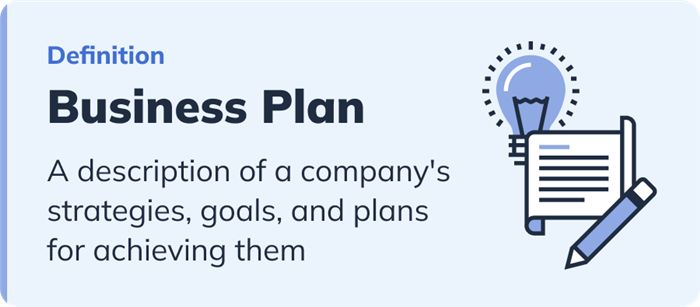If you’ve ever jotted down a business idea on a napkin with a few tasks, you’ve written a business plan — or at least the basic components.
The origin of formal business plans is murky, but they go back centuries. Considering the high failure rate of new businesses, thorough planning and research are crucial.
So, what is a business plan? And how do you transition from ideas to a formal plan? We’ll answer these questions and explain why a business plan is essential for success.

A business plan is a strategic roadmap for new or growing businesses. Entrepreneurs with great ideas need to conduct market research, analyze competitors, validate ideas by talking to potential customers, and define unique value propositions. The plan captures the opportunity for the company, describing the product or service, business model, and target market. It also details how the plan will be executed, including pricing, marketing, and financial projections.
Writing a business plan is important for several reasons. Companies that commit to planning grow 30% faster than those that don’t. It is crucial for businesses of any size or stage, especially when raising funds or seeking investment. Additionally, the plan serves as a roadmap to identify and address potential risks, ensuring the business stays on course.
Research shows that planning improves business performance. Fast-growing companies with business plans that include budgets, sales goals, and marketing strategies are more successful. Clearly defining a value proposition increases success, and having a plan increases the likelihood of securing funding. Starting the planning process before investing in marketing also reduces the risk of failure.
The timing for writing a business plan depends on the situation. The ideal time, according to a Harvard Business Review study, is between 6 and 12 months after deciding to start a business. However, it can vary based on the stage or type of plan being written. Some ideal times to write a plan include having an idea for a business, starting a business, preparing to buy or sell, seeking funding, responding to changing business conditions, or growing and scaling a business.
Updating a business plan depends on individual circumstances. It is not a one-time document but a living guide. Entrepreneurs at the ideation stage can use their plan to determine if their idea can become a profitable business. Owners of established businesses can update the plan to respond to market shifts, compare forecasts to actual results, and identify areas for improvement.
The length of a business plan should not be the primary focus. It should be concise and clear, matching the expectations of the audience. For bank loans or outside investments, a formal, professional style is necessary. Internal plans can be shorter, tailored to the team involved. The length may also depend on the stage of the business, with startup plans requiring less financial information than established companies.
The contents of a business plan vary based on the industry. However, common elements include an executive summary, product and service descriptions, market and competitive analysis, marketing and sales plans, operational requirements, organization and management structure, key milestones, financial projections, and appendices.
Different types of business plans exist to meet specific needs. One-page plans condense important information into a single page, while growth plans ensure alignment as the business scales. Internal plans are shorter versions shared with internal stakeholders.
Business plans, operational plans, and strategic plans serve different purposes. Understanding what questions you are trying to answer and the objectives you want to achieve will guide your plan. An operational plan focuses on short-term goals, while a strategic plan looks at longer-range opportunities and how to meet large goals over time.
A business plan and a business model are related but distinct. The plan outlines tactics to succeed in the market, while the business model defines how a business will operate and make money.
To move from idea to a business plan, start with a one-page plan and seek inspiration from over 550 examples tailored to different industries. Use relevant sections and customize them for your business.
Hello!
I’m Andrew Brooks, a seasoned finance consultant from the USA and the mind behind phonenumber247.com.
My career is built on a foundation of helping individuals and businesses thrive financially in an ever-changing economic landscape. At phonenumber247.com, my aim is to demystify the complex world of finance, providing clear, actionable advice that can help you navigate your financial journey with confidence. Whether it’s personal finance management, investment strategies, or understanding the nuances of market dynamics, I’m here to share insights and tools that can propel you towards your financial goals.
Welcome to my digital space, where every piece of advice is a step closer to financial clarity and success!
